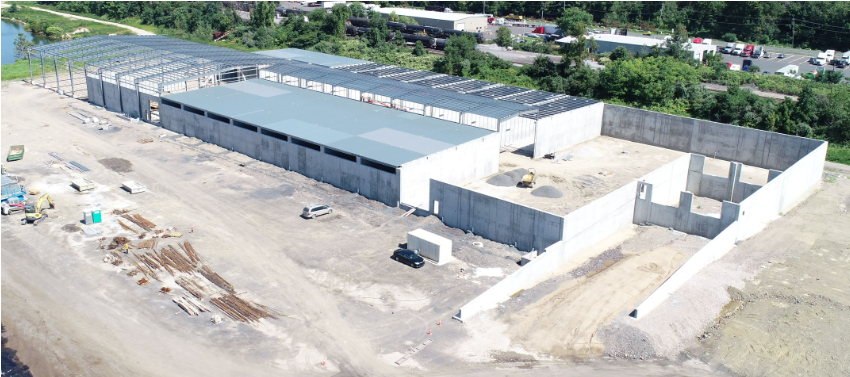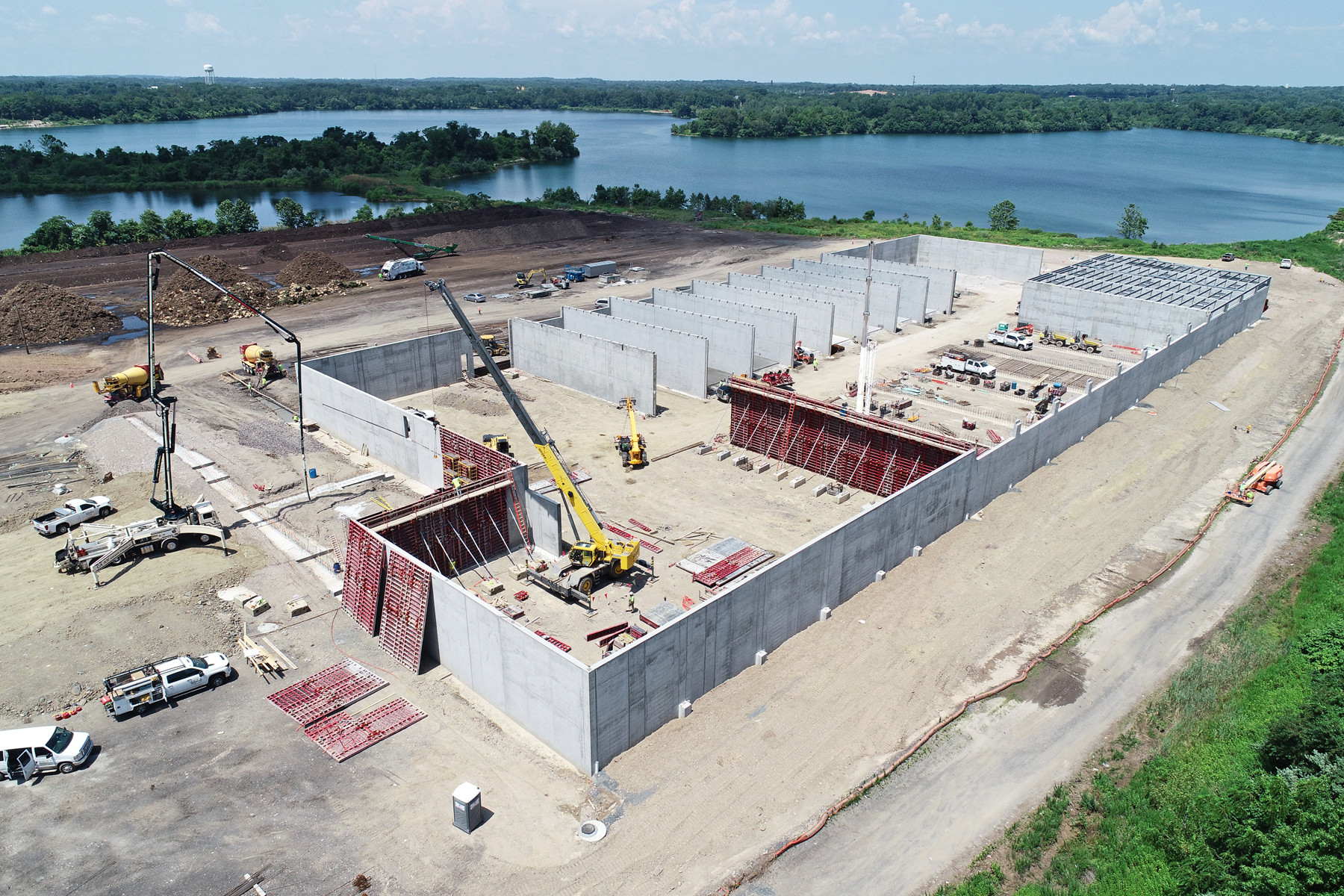
McGill Fairless Hills, PA Regional Composting Facility: Site Construction passes the 50% mark – on schedule for Q1 ’24 completion.
Construction has hit the 50% mark at Fairless Hills.
Natural processes with state-of-the-art technology
Our commercial composting facilities boost natural processes with state-of-the-art technology to recycle and process a wide variety of organic materials at our all-weather indoor facilities 24/7, 365 days a year.
Our facilities offer many advantages over more traditional disposal and composting operations.
Our sites are designed to be unobtrusive and blend in with the communities and neighborhoods we serve. Behind that facade is a modern, industrial-scale compost manufacturing plant utilizing the latest technologies and scientifically advanced processes.

McGill Fairless Hills, PA Regional Composting Facility: Site Construction passes the 50% mark – on schedule for Q1 ’24 completion.
Construction has hit the 50% mark at Fairless Hills.

McGill’s Newest Regional Composting Facility – McGill Fairless Hills
Construction continues at McGill's latest facility, Fairless Hills PA.

McGill’s Noel Lyons Receives the Hi Kellogg Award
McGill’s President, Noel Lyons, received the Hi Kellogg Award at the US Composting Council’s conference and tradeshow, COMPOST 2022.